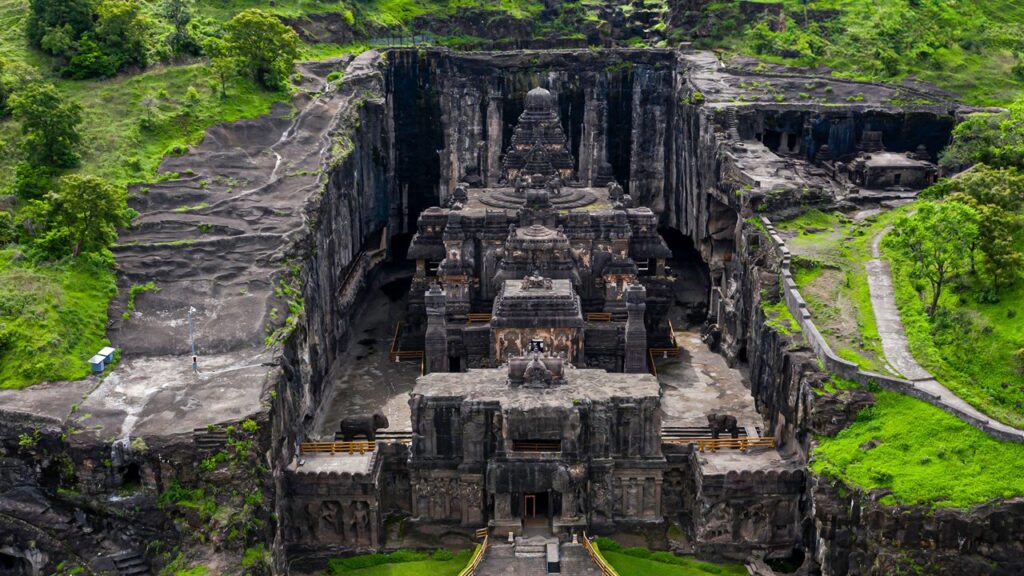Ellora Kailasa Temple

The Kailasanatha Temple in Ellora, Maharashtra, stands as the world’s largest monolithic structure, carved out of a single hill of basalt rock. Sculpted over 1,200 years ago by the Rashtrakuta dynasty, this rock-cut masterpiece leaves visitors in awe of its scale and intricacy. Spanning 300 feet in length and rising 96 feet high, this ancient temple complex has astounded generations with its artistry and ambition.
Part of the UNESCO-listed Ellora Caves, Kailasa Temple is a breathtaking example of ancient Indian architectural ingenuity. It showcases elaborate sculptures of Hindu deities, including many depictions of Lord Shiva, alongside other figures from the Mahabharata, Ramayana, and Bhagavad Purana. Despite its immense size, the temple was not built with imported materials but was carved directly from the mountain, removing an estimated 150,000 to 200,000 tonnes of rock — a process still shrouded in mystery.
Throughout the video, we explore the incredible craftsmanship of the temple’s creators and the enduring legacy of this architectural wonder. Questions about how the temple was conceived, chiselled, and completed persist, with some even suggesting that this could have been the work of extraterrestrials. That’s a testament to the remarkable ingenuity and skill of ancient Indian builders and sculptors who created this unparalleled monument of devotion, artistry, and technical brilliance.
Video Chapters
00:00 – Intro
00:58 – William Dalrymple on the Architectural Marvel
01:48 – Ellora Caves – UNESCO World Heritage Site
02:25 – Aspect of Construction still a Mystery
02:40 – Another Secret Came to Light
03:33 – The Rashtrakutas
04:23 – Structure of Kailasa Temple
06:08 – Architectural Brilliance
07:10 – Sculptures of Gods & Goddesses
07:25 – Shiva’s Prominence
08:00 – How Did They Do It?
09:20 – The Largest Rock Cut Monolith
09:33 – Another Enduring Mystery?
10:25 – Who is to be credited for this work?
The Incredible Caves
The ancient Indian name for Ellora was Verul Leni. Even now the local people refer to this place as Verul. It is one of the largest rock-cut cave complexes in the world. These temples and caves were carved out of the vertical face of the Charanandri Hills from the 6th to the 10th centuries. They are dedicated to the various gods of Hinduism, Buddhism and Jainism, thus showing the great religious tolerance which was prevalent in India at that time long before the advent of Islam and Christianity.